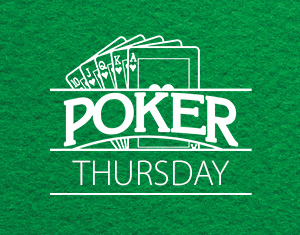A bounty is a feature in some poker tournaments that rewards a player for eliminating another player. Depending on the tournament, a player might be rewarded for eliminating either a specific player, or any player. The reward is almost always a cash prize, and not tournament currency. Bounties are rare but do occur occasionally in professional tournaments.[1] They are more commonly only implemented in smaller tournaments, or charitable tournaments.
Knockout tournaments, or 'bounty' tournaments, are becoming increasingly popular in online poker. The premise is simple, your buy-in is divided three ways: prize pool, bounty, and, of course, rake. Jul 10, 2019 Re: Turbo Texas Holdem (Wilson Software) It is true that the software opposition was horrible. However, ten years ago it performed exactly like 95% of the real opposition that I encountered in every live 3/6 limit and 4/8 limit holdem game I played in.
Texas Holdem Facebook
In bounty tournaments that reward a player for every player they eliminate, the buy-in structure of the tournament may require each player to pay an additional amount for their own bounty chip, or token. This bounty chip is carried by the player throughout the tournament. If the player is eliminated, the bounty chip is given to the player who eliminated them. The bounty chips are cashed in, usually for the amount each player paid for the bounty chip. The winner can usually cash in their own chip. Some online tournaments use a more complicated schedule, whereby a player's own bounty increases with every elimination he makes.
Some bounty tournaments assign a bounty to only a few players. This assignment is rarely random, and is usually pre-arranged with the players who have bounties on them, as such an assignment to a random entrant would significantly affect their game. Some tournaments may feature a celebrity bounty, if the tournament hosts have arranged for a celebrity to play in the tournament. This type of bounty arrangement is usually only the celebrity bounty variety, or if the player with a bounty on them is promoting the tournament.
The aspect of having a bounty in a tournament can significantly affect the play of the tournament. For example, if a player with a lower amount of chips declares that they are all-in, other players may be more enticed to call the bet. Most professional poker players would alter their normal playing style to adapt to this aspect if they were to enter a bounty tournament.
You must have at least the same amount of chips as the bounty holder (in other words, have them 'covered') to take their bounty, as it's the player who takes the last chips from a player that is awarded the Bounty. This may not be the overall hand winner; the bounty is awarded to the player who wins the ‘relevant pot’ for the hand in question, which may be the main pot or one of several side pots. ‘Relevant pot’ means the pot in which the bounty player was all-in for their final chips.
Turbo Texas Holdem Software
For example:Daniel (100 chips), Barry (200 chips), Vicky (400 chips), and Julian (1000 chips), are playing a hand in a No-Limit tournament.Daniel moves all-in, and Barry, Vicky and Julian call. The pot which Daniel is eligible for is known as the ‘main pot’. Betting continues ‘on the side’, in side pot 1.Barry moves all-in, and Vicky and Julian call. Betting continues between Vicky and Julian in side pot 2.Vicky moves all-in, and Julian calls.Barry shows the best hand. He wins side pot 1 and the main pot, eliminating Daniel. He receives the bounty for Daniel.Julian shows the next best hand, and wins side pot 2, eliminating Vicky. Julian wins the bounty for Vicky.Note that although Barry had the best hand overall, he didn’t have as many chips as Vicky and therefore could not eliminate her. Julian however did have enough chips, and therefore wins Vicky’s bounty

What Is Texas Holdem Turbo Free
Notes[edit]
- ^Bay101.com: Shooting StarArchived December 3, 2008, at the Wayback Machine
